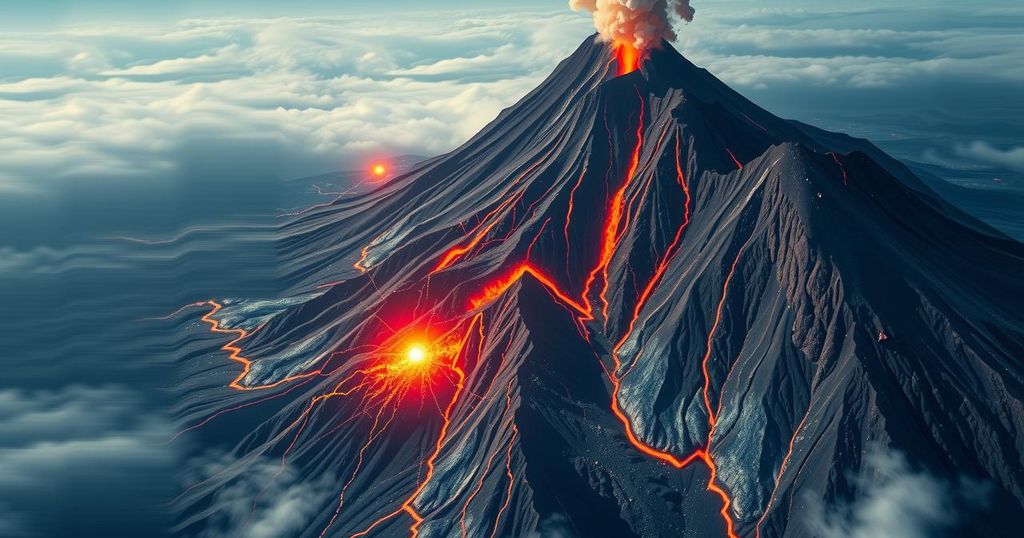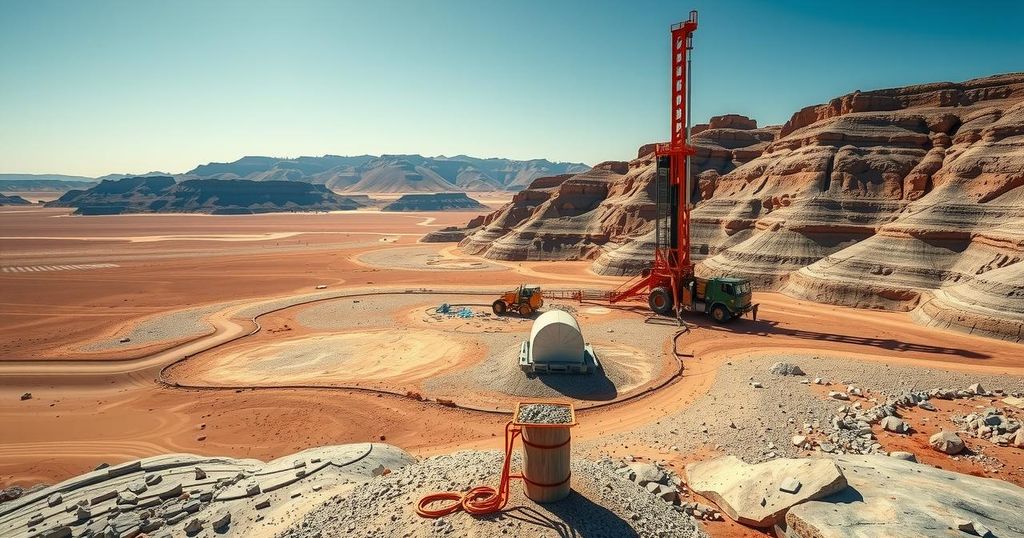Ethiopia Faces Earthquake and Volcano Eruption Amid Regional Tensions
A magnitude-5.8 earthquake hit Ethiopia near Addis Ababa, accompanied by an eruption of Mount Dofan. Concerns about increased seismic activity and the impact on the Grand Ethiopian Renaissance Dam have arisen, prompting evacuations of residents. Diplomatic negotiations regarding the dam, crucial for Egypt and Sudan’s water rights, remain unresolved.
On January 4, 2025, a magnitude-5.8 earthquake struck Ethiopia, impacting areas near Abomsa and Amhara in the Afar region, not far from the capital, Addis Ababa. The seismic event occurred at a depth of 10 kilometers, as reported by both the Ethiopian Geological Institute and the United States Geological Survey (USGS). Following the quake, concerns have been raised regarding increasing tremors and potential volcanic activity in the region.
In conjunction with the earthquake, Mount Dofan in the Afar region has erupted, leading authorities to evacuate thousands of residents to temporary shelters. Geological specialists have expressed that the seismic activity could intensify, possibly indicating further tremors or eruptions. Abbas Sheraqi, a geologist from Cairo University, warned that increased volcanic activity might generate more lava that could extend to the nearby Fentale volcano, which is situated in a densely populated area.
The recent geological events have raised alarms regarding their potential implications on the Grand Ethiopian Renaissance Dam (GERD), particularly for the downstream nations of Egypt and Sudan. While Sheraqi noted that the stability of the dam is a concern, he highlighted that it is crucial to prioritize the safety of both Ethiopian nationals and the citizens of Sudan. Ongoing discussions regarding the GERD have been contentious, as Egypt and Sudan have struggled to reach a binding agreement with Ethiopia despite over a decade of negotiations. The complexities surrounding these geological events will undoubtedly influence diplomatic relations in the region.
Ethiopia, located in the Horn of Africa, has been experiencing increasing seismic activity that has raised concerns among scientists and geologists. The country is home to significant geological landmarks, including active volcanoes and the Grand Ethiopian Renaissance Dam (GERD), which is a focal point of regional disputes over water rights. The recent earthquake and volcanic eruption have brought attention to the potential risks posed by natural disasters in a country already grappling with complex geopolitical tensions with neighboring countries, primarily Egypt and Sudan.
In summary, the recent magnitude-5.8 earthquake and the eruption of Mount Dofan in Ethiopia highlight the growing geological instability in the region. With thousands displaced due to evacuations and concerns over further volcanic activity, these events have significant implications for local populations and bilateral relations between Ethiopia, Egypt, and Sudan. Ongoing diplomacy regarding the GERD will likely be affected as regional stakeholders navigate the natural and political challenges ahead.
Original Source: www.egypttoday.com




Post Comment